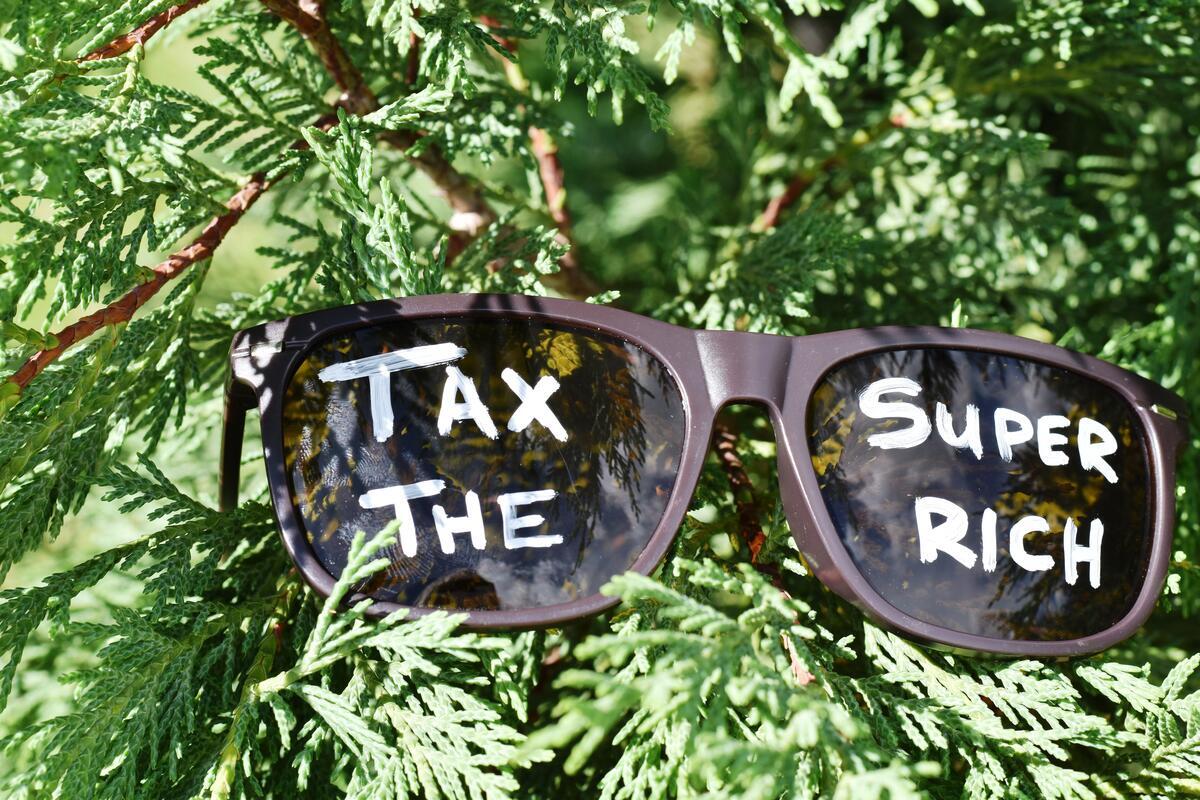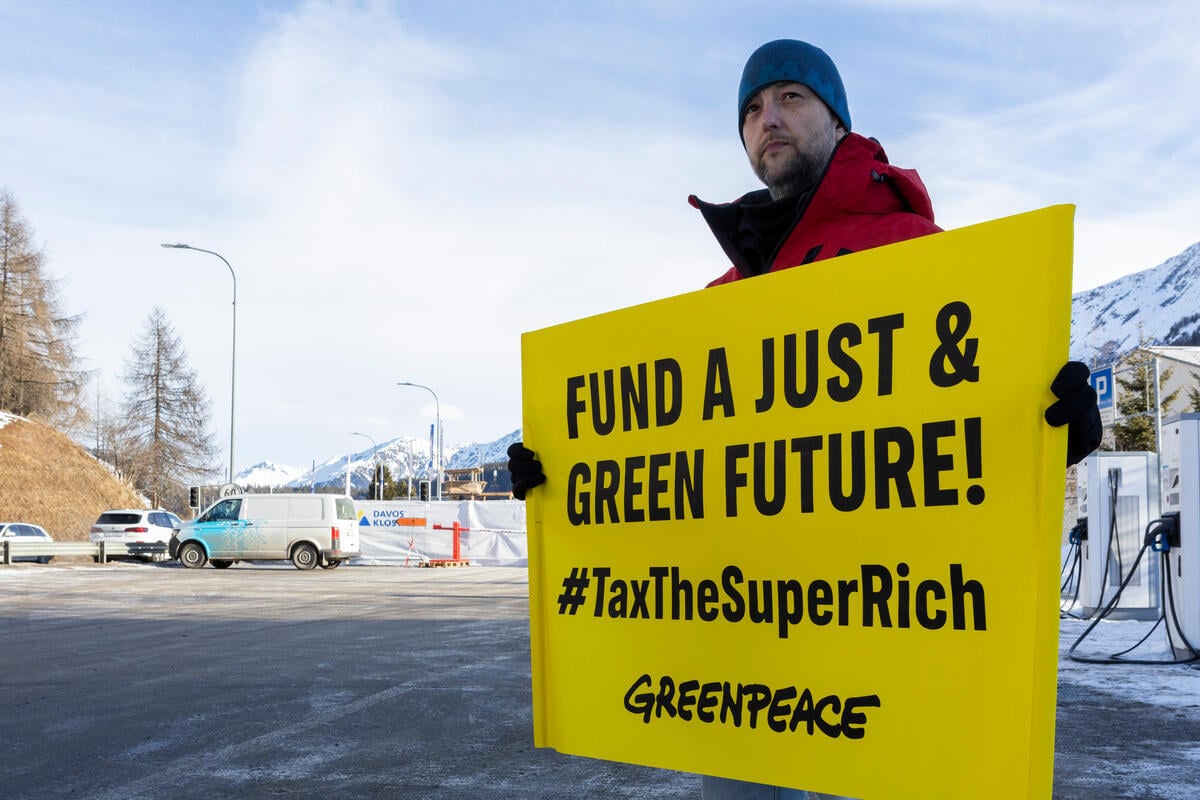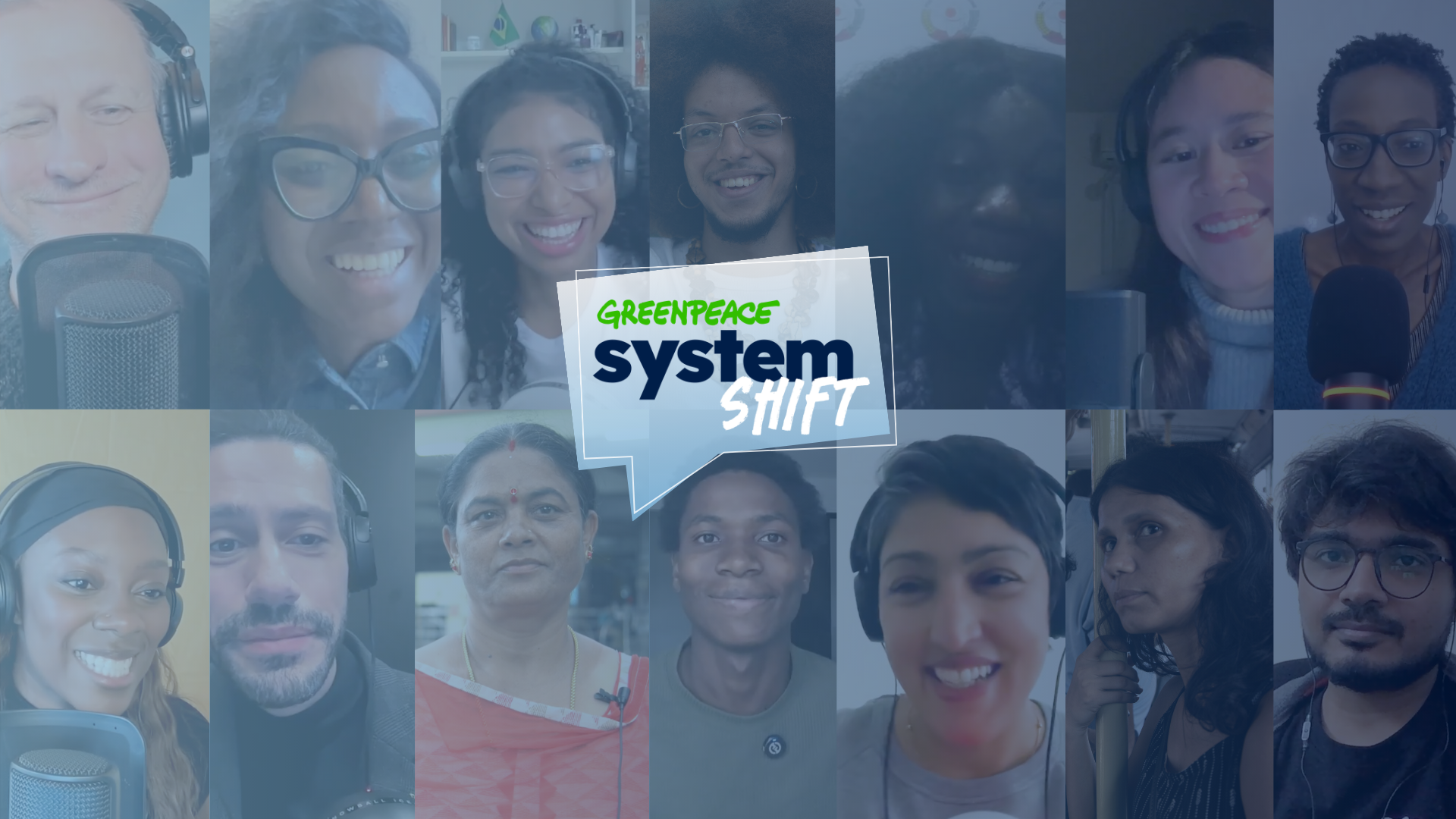With an estimated 84% of the world’s population identifying with a religious group, faith communities hold immense potential for mobilising action on climate change.
Islamic Finance stands out as a model that ensures financial structures promote fairness, shared prosperity, and climate justice.
By shifting investments away from fossil fuels and towards climate action, Islamic Finance can accelerate the transition to a greener, more equitable future.
Coinciding with the beginning of Ramadan, Joycelyn and Yewande bring this topic to the new episode of SystemShift, a Greenpeace podcast that explores how we can move from a world that serves the economy to an economy that works for people and the planet.
This episode features Tariq Al-Olaimy, Islamic Finance Advisor to Greenpeace MENA and Advisory Board Member for the UN Decade on Ecosystem Restoration.
Islamic Finance: faith-based, justice-driven
Islamic Finance operates on principles that align closely with sustainability and climate justice. It discourages harmful investments, promotes ethical, risk-sharing financial practices, and emphasizes social good over unchecked profit.
“It’s to live up to our potential of creating flourishing conditions for all of life. This is what all of faith compels us and brings us forward to do”, Tariq said.
This presents a unique opportunity: instead of perpetuating the same extractive and exploitative economic model that led us to this crisis, Islamic Finance offers an alternative built on cooperation, regeneration, and respect for the limits of Earth.
“Nature is about respecting planetary boundaries. It’s about limits in a way that it’s optimised for the flourishing of all of life. And our economy doesn’t quite work that way”, he adds.
The global Islamic Finance industry manages approximately US $4 trillion in assets, and this figure is projected to grow to US $6.7 trillion by 2027. Imagine the impact if even 5% of these assets were directed towards renewable energy and energy efficiency—it could unlock around US $4 billion for climate finance by 2030.
It’s clear that there’s money for climate action and social justice, it’s just in the wrong place – as it was also exposed in a previous episode of the SystemShift podcast.
Blended finance: Unlocking climate investments
To scale up impact, a combination of public and private funding with Islamic financial tools such as Sukuk (Islamic bonds) is essential. This blended finance approach encourages risk-sharing, making it easier for diverse stakeholders to invest in climate resilience projects.
These investments can fund crucial sectors like sustainable agriculture, eco-friendly infrastructure, and renewable energy, particularly in marginalised communities and regions where climate change is hitting the hardest.
But we need to go beyond traditional climate finance solutions. Too many so-called green investments still operate within the same extractive mindset that has fueled the climate crisis in the first place.
“A lot of these so-called solutions for climate action still operate within the same extractive mechanistic worldview that has created this crisis”, Tariq added.
Faith, Finance, and Climate Justice
For centuries, faith traditions have taught humanity how to live in harmony with nature, recognising it as more than just a resource for endless consumption.
“I come from a tradition that says you must read nature as if it is scripture. That the real classroom and lesson is nature”, Tariq shared. This wisdom is crucial now more than ever, as we face the urgent need to redesign our economy to support life instead of exploiting it.
The urgency of the climate crisis demands action at all levels—from policymakers and investors to faith institutions, communities and individuals. Islamic Finance must lead, not follow, in driving this change.
By fully embracing climate justice and social equity, it has the potential to transform financial systems and create a sustainable future for all. As Tariq concluded: “What we need now is systems change and a systems shift”.
What’s our role as individuals? What can we do?
Here are some concrete things you can do:
- Listen to the Podcast for Earth, an initiative by Greenpeace MENA and The Arab Youth Green Voices Network that highlights issues related to Faith and the environment, Islamic values and protecting Earth, youth and the climate movement.
- Listen or watch the SystemShift podcast that inspired this blog post: do it on Apple Podcasts, Spotify, or Youtube (the video version is subtitled in Arabic, Bahasa and other languages).
- Learn more about Islamic Finance by visiting the Ummah for Earth website, where you can join as an individual or as an organisation.
- Download, read and share with friends and family, the Islamic Finance and Renewable energy report to know more about the sector and its potential to increase investments into renewable energy as a climate action tool.




Discussion
As a long standing supporter of Greenpeace I read the article on climate action and Islamic finance with incredulity and alarm. We certainly need all the support and resources we can muster for the movement to save the planet but can we ally ourselves with a religion that is misogynistic, homophobic and many of whose adherents are bent of establishing a Muslim caliphate based on the odious principles of sharia law? If our movement was to use Islamic finance would it find itself dependent on turning a blind eye to the above evils or promoting a particular religion that is hostile to so many of the basic principles we hold dear? I am aware that both Jewish and Islamic institution's are pressing for definitions of "hate crime" that will make it a crime to criticise aspects of religious beliefs and practices, thereby introducing by the back door the reintroduction of blasphemy laws and can reassure you that this is not some kind of racist rant but a legitimate criticism and a warning against , in any way becoming dependant on finance from resources whose political stance on so many issues is anathema to the values of Greenpeace supporters.
I share your concerns. This is not only the beginning of Ramadan, but also the start of Lent this year. An article including Christian support for climate change issues such as that given by Tearfund and Just Money would have been better advised. A secular organisation such as Greenpeace should not be advocating for one particular religion or seeking their support alone.
We respect all religions and beliefs and all who hold no religious belief. The podcast concerns the philosophical basis of “Islamic Finance”, which is built on cooperation, regeneration, and respect for the limits of Earth. It introduces us to a practical alternative to the extractive and exploitative economic model that has brought about the triple crisis.
Many religions are based on values that are also Greenpeace’s core values, such as that humans are stewards and witnesses of the planet and they should protect it. Taking care of the environment is a noble cause, whether the motivation is religious, scientific, or humane.
Over 80% of the world’s population identifies with a religious group. We need 100% of humanity, or at least most of it, to agree, support, champion, and demand climate action. We recognise that only environmental solutions that connect with people’s everyday concerns and beliefs will realise our vision for a green and peaceful planet - and that includes (but is not limited to) faith-based beliefs.
At the same time, together with Greenpeace Middle East and North Africa and Greenpeace Indonesia, among others, we are aware of the role that countries with Muslim majorities play in the climate crisis, both in decarbonising their economies and protecting millions of people highly vulnerable to, and strongly impacted by, the effects of climate change.
Greenpeace believes in promoting solutions, which is what the SystemShift podcast and this particular episode aim to do by exploring “Islamic Finance” as a tool to potentially transform extractivist economies and mobilise necessary resources for climate action.
With the SystemShift podcast, we look for answers and stories of justice, solutions, and alternatives, collaboratively showing how other ways are possible through a decolonising, intersectional and hopeful point of view.
We kindly invite you to listen to the episode and share your thoughts with us, especially on the following segments:
9:25 - What is Islamic Finance?
15:02 - How can Islamic Finance bridge the climate finance gap?